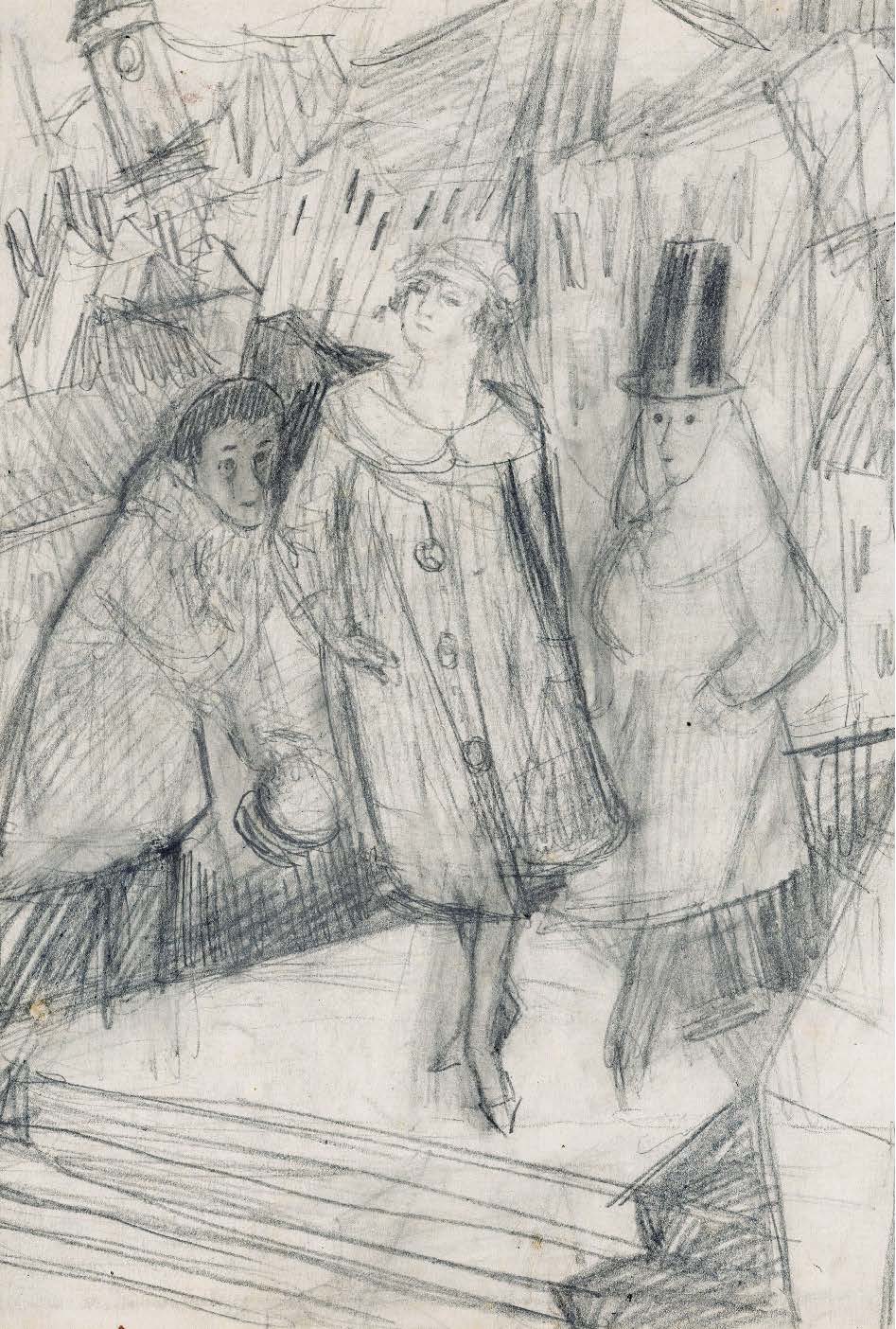Między wyobraźnią romantyczną a literacką moderną. Georg Groddeck w lustrze psychoanalizy
DOI:
https://doi.org/10.26881/sf.2019.13.11Słowa kluczowe:
psychoanaliza, Georg Groddeck, powieść epistolarna, przekład, Sigmund FreudAbstrakt
The aim of the present paper is to introduce the theory of a German physician and so-called “wild psychoanalyst” Georg Groddeck. During World War I, after contacting Sigmund Freud, Groddeck has started to develop his own psychoanalytic theory in his scientific as well as literary writings. In 1923 he published a novel entitled The Book of the It (Das Buch vom Es), in which he discussed and reinterpreted Freud’s theory. By introducing the category of the “It” (das Es), Groddeck aimed to elaborate on Freud’s concept of the unconscious, which he considered too restricted and reduced to what the Viennese psychoanalyst defined as the conscious and the preconscious. The author points out to the importance of the discussion between Freud and Groddeck, which began as early as in 1917 in their letters. The publication of The Book of the It coincide with Freud’s treatise The Ego and the Id (Das Ich und das Es) written the same year. The author analyzes the similarities as well as the differences between Freud’s and Groddeck’s concepts of the It (das Es). Groddeck’s theory is presented in the light of German philosophical and literary tradition. The paper addresses the problem of Groddeck modernist writing strategies, such as combining psychoanalysis with literature and with different life-writing genres which are seen as his way to create a new language in the scientific discourse of his time. The author emphasizes the importance of two main categories in Groddeck’s writings, which have animated his entire theory. One is imagination, deeply rooted in romanticism, the other is self-analysis related to the modernist understanding of autobiography. While imagination represents Groddeck’s general doubt in the objectivity of science, especially in a linear progress in medicine, self-analysis is linked to his conviction that every discourse – not only literary, but also philosophical or psychoanalytic, has an autobiographical, hence also intimate dimension.
Downloads
Bibliografia
Deleuze Gilles. 2014. Spinoza. Filozofia praktyczna. Przeł. J. Brzeziński. Warszawa: PWN.
Ellenberger Henri. 2001. Histoire de la découverte de l’inconscient. Trad. J. Feisthauer. Paris: Fayard.
Freud Sigmund, Groddeck Georg. 2008. Briefwechsel. Hrsg. von M. Giefer. Frankfurt am Main: Stroemfeld.
Freud Sigmund. 1910. „Über «wilde» Psychoanalyse”. Zentralblatt für Psychoanalyse 1 (3).
Freud Sigmund. 1914. „Zur Geschichte der psychoanalytischen Bewegung”. Jahrbuch für Psychoanalytische und Psychopathologische Forschung 6 (1).
Freud Sigmund. 1963. Correspondance avec le pasteur Pfister 1909–1939. Trad. L. Jumel. Paris: Gallimard.
Freud Sigmund. 2007. O „dzikiej” psychoanalizie. W Technika terapii. Przeł. R. Reszke. Warszawa: Wydawnictwo KR.
Freud Sigmund. 2009. „Ja” i „to”. W Psychologia nieświadomościPrzeł. R. Reszke. Warszawa: Wydawnictwo KR.
Freud Sigmund. 2009. Wykłady ze wstępu do psychoanalizy. Nowy cykl. Przeł. R. Reszke. Warszawa: Wydawnictwo KR.
Grimmelshausen Hans Jakob Christoffel von. 1958. Przygody Simplicissimusa. Przeł. A.M. Linke. Warszawa: PIW.
Groddeck Georg. 1906. Die Hochzeit des Dionysos. Dresden: E. Pierson.
Groddeck Georg. 1913. Nasamecu, Der gesunde und kranke Mensch gemeinverständlich dargestellt. Leipzig: S. Hirzel.
Groddeck Georg. 1917. Psychische Bedingtheit und psychoanalytische Behandlung organischer Leiden. Leipzig: S. Hirzel.
Groddeck Georg. 1921. Der Seelensucher. Ein psychoanalytischer Roman. Leipzig–Wien–Zürich: Internationaler Psychoanalytischer Verlag.
Groddeck Georg. 1922. „Der Symbolisierungszwang”. Imago 8 (1).
Groddeck Georg. 1923. Das Buch Vom Es. Psychoanalytische Briefe an eine Freundin, Internationaler Psychoanalytischer Verlag. Leipzig–Wien–Zürich: Internationaler Psychoanatytischer Verlag.
Groddeck Georg. 1932. „Wege zum Es”. Psychoanalytische Bewegung 4 (2).
Groddeck Georg. 1933. Der Mensch als Symbol. Unmassgebliche Meinungen über Sprache und Kunst. Wien: Internationaler Psychoanalytischer Verlag.
Groddeck Georg. 1969. Ça et la psychoanalyse. W La maladie, l’art et le symbole. Trad. R. Lewinter. Paris: Gallimard.
Groddeck Georg. 1977. The Meaning of Illness. Selected Psychoanalytic Writings Including his Correspondence with Sigmund Freud. Ed. L. Schacht. Trans. G. Mander. London: Hogarth Press.
Groddeck Georg. 2001. Die Arche. 3 Bände. Hrsg. von O. Jägersberg. Frankfurt am Main: Stroemfeld.
Grossman Carl, Grossman Sylva. 1978. L’Analyste sauvage. Georg Groddeck. Trad. A. Philippe. Paris: Presses Universitaires de France.
Kant Immanuel. 1964. Krytyka władzy sądzenia. Przeł. J. Gałecki. Warszawa: PWN.
Nietzsche Friedrich. 1911. Ecce homo. Jak się staje – kim się jest. Przeł. L. Staff. Warszawa: nakładem Wydawnictwa J. Mortkowicza.
Nitzschke Bernd. 1983. „Zur Herkunft des «Es». Freud, Groddeck, Nietzsche – Schopenhauer und E. von Hartmann”. Psyche 37 (9).
Novalis. 1984. Proza filozoficzna. Studia – fragmenty. Przeł. J. Prokopiuk. Warszawa: Czytelnik .
Ochorowicz Julian. 1869. Jak należy badać dusze? O metodzie badań psychologicznych. Warszawa: nakładem Karola Kowalewskiego.
Rudnytsky Peter L. 2002. Reading Psychoanalysis. Freud, Rank, Ferenczi, Groddeck. New York: Cornell University Press.
Spinoza Baruch. 1991. Etyka. Przeł. I. Myślicki. Warszawa: Wydawnictwo AKME.

 Uniwersyteckie Czasopisma Naukowe
Uniwersyteckie Czasopisma Naukowe





